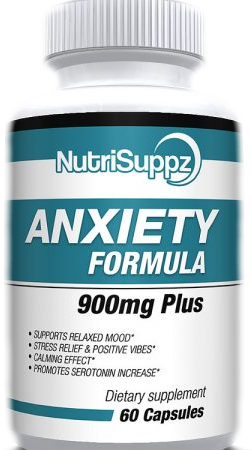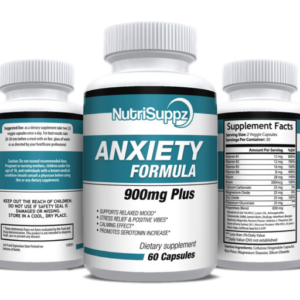31 Aug The Science of Stress: How the SNS Affects Your Anxiety Levels
The Science of Stress: How the SNS Affects Your Anxiety Levels
The sympathetic nervous system (SNS) is a critical component of the autonomic nervous system, responsible for orchestrating the body’s “fight or flight” response. This system has profound implications for how we experience and manage anxiety. At Nutrisuppz, we believe in a comprehensive understanding of how our body’s internal systems affect mental health. In this blog post, we’ll delve into the functions of the SNS, its role in anxiety, and ways to manage its effects.
What is the Sympathetic Nervous System?
The sympathetic nervous system is a part of the autonomic nervous system that prepares the body for high-stress situations. It activates physiological changes such as increased heart rate, elevated blood pressure, and heightened alertness, all aimed at helping the body respond quickly to perceived threats. This system is essential for survival, but chronic activation can contribute to anxiety and stress-related disorders.
How the SNS Triggers Anxiety
The SNS triggers the body’s stress response when it perceives a threat. This response includes releasing stress hormones like adrenaline and cortisol, which prepare the body for immediate action. While this reaction is useful in acute situations, prolonged activation of the SNS can lead to persistent anxiety. Chronic stress or anxiety can keep the SNS in a heightened state, causing ongoing symptoms such as rapid heartbeat, muscle tension, and restlessness.
The Connection Between SNS and Anxiety
When the SNS is overactive, it can result in a constant state of alertness and heightened stress responses. This overactivity can exacerbate anxiety symptoms, leading to a cycle where anxiety further stimulates the SNS. Individuals with anxiety disorders often experience an exaggerated stress response, even in situations that are not genuinely threatening. Understanding this connection is crucial for developing effective strategies to manage anxiety.
Techniques to Regulate the SNS
To manage anxiety, it’s important to focus on techniques that help regulate the sympathetic nervous system. Stress reduction strategies such as deep breathing exercises, progressive muscle relaxation, and mindfulness meditation can help calm the SNS and reduce anxiety symptoms. Regular physical activity also plays a significant role in balancing the SNS, as exercise helps lower stress hormone levels and improve overall mood.
The Role of Lifestyle Choices
Lifestyle choices significantly impact the functioning of the SNS. Ensuring adequate sleep, maintaining a balanced diet, and engaging in regular physical activity can help regulate the sympathetic nervous system. Additionally, avoiding excessive caffeine and alcohol, which can stimulate the SNS, contributes to better anxiety management. Developing healthy habits and reducing exposure to stressors are essential for keeping the SNS in balance.
Dietary Considerations for SNS Health
Certain nutrients support the health of the sympathetic nervous system and can help manage anxiety. Magnesium, for instance, plays a role in calming the nervous system and regulating stress responses. Omega-3 fatty acids, found in fish and flaxseeds, also contribute to reducing inflammation and promoting mental well-being. Incorporating these nutrients into your diet can support a balanced SNS and overall anxiety management.
Final Thoughts
The sympathetic nervous system plays a crucial role in our body’s response to stress and anxiety. By understanding its functions and how it contributes to anxiety, you can take proactive steps to manage its impact. At Nutrisuppz, we emphasize the importance of balancing the SNS through stress reduction techniques, healthy lifestyle choices, and proper nutrition.



No Comments